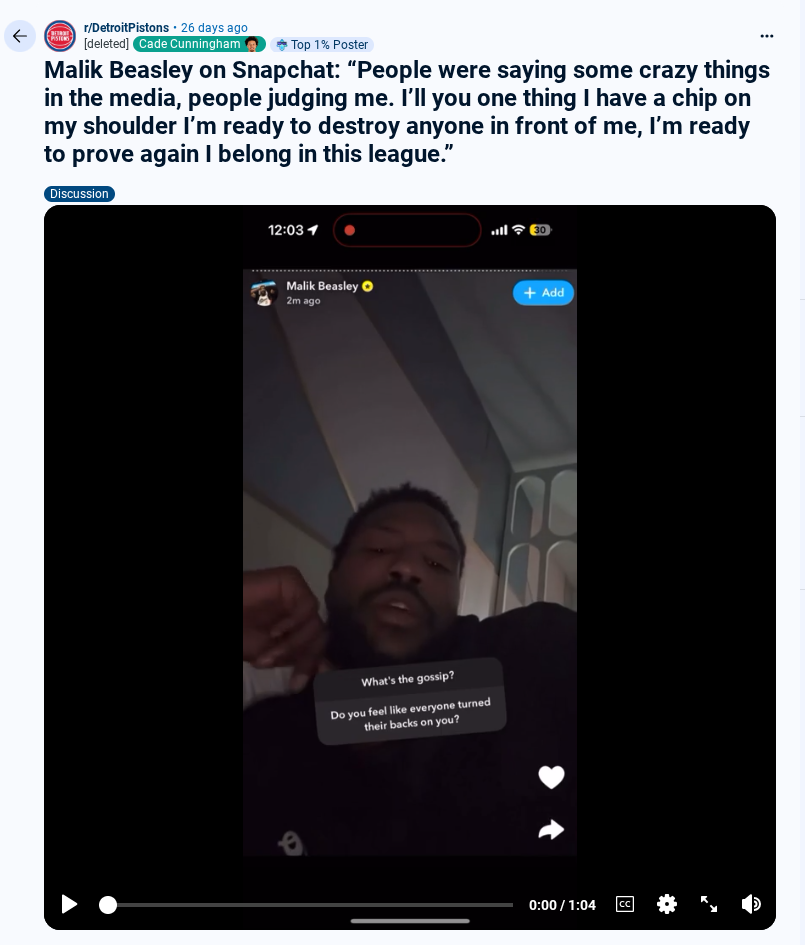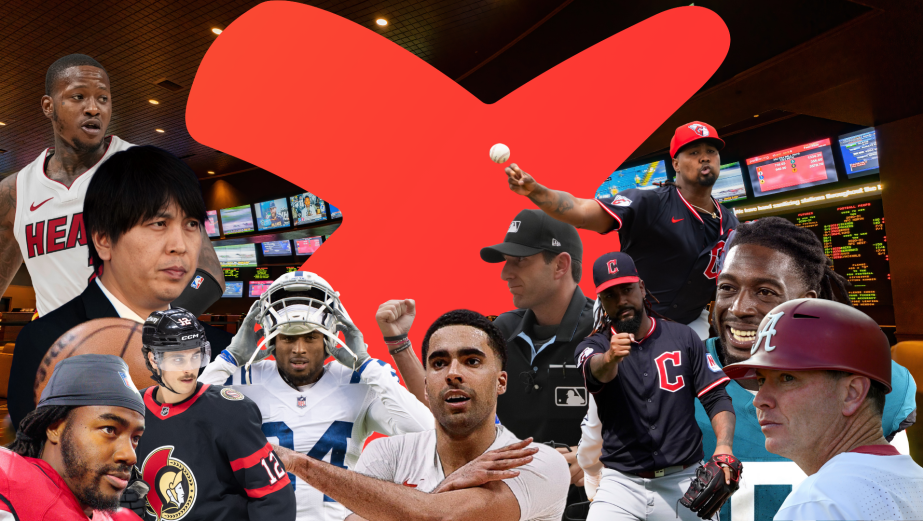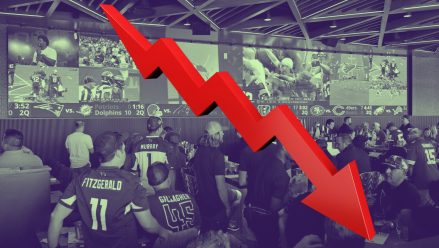Malik Beasley said he didn’t do anything wrong. His attorneys reminded everyone that he hadn’t been accused of any crimes. And ultimately, they were vindicated.
Two weeks ago, the United States Attorney for the Eastern District of New York acknowledged that the NBA free agent and former Detroit Piston had been cleared of any potential wrong-doing in the same investigation that snared since-banned Jontay Porter and still involves veteran Terry Rozier. ESPN reported on Sept. 10 that the NBA was close to concluding an internal investigation.
According to reports, Beasley was investigated for a game in 2024 when a suspicious line movement occurred on his under-performing on a 2.5 rebounds total. Beasley finished with six, so any bets on that prop lost.
Teams in all professional leagues have always put aside off-field troubles to gather players that help them win. Teams are in the business of winning, and fans can make their own value judgments. This has remained largely true despite the sports betting scandals that have beset pro leagues in recent years.
Calvin Ridley, Jameson Williams, and others in the NFL, along with NHL and NBA players who violated their leagues’ gambling rules, served suspensions and returned to resume their careers.
The difference is, they weren’t accused of manipulating games like Beasley, Porter, or Cleveland Guardians pitchers Emmanuel Clase and Luis Ortiz Jr., whose paid administrative leaves were recently extended from Aug. 31 to the end of the season. Major League Baseball said in a statement to InGame: “MLB and the MLBPA have agreed to extend the non-disciplinary paid leave of Cleveland Guardians pitchers Emmanuel Clase and Luis Ortiz until further notice while MLB continues its investigation. We will not comment further until the investigation has been completed.”
Fairness, suspicion, judgments, reputations
Beasley’s attorneys told ESPN that what happened with their client has “literally been the opposite of the presumption of innocence.”
“Months after this investigation commenced, Malik remains uncharged and is not the target of this investigation,” attorney Steve Haney told ESPN. “An allegation with no charge, indictment or conviction should never have the catastrophic consequence this has caused Malik.”
“An allegation with no charge, indictment or conviction should never have the catastrophic consequence this has caused Malik.”
Beasley was in line for a career-defining payday after averaging 16.3 points and setting the Detroit franchise record for three-pointers. But a three-year, $42-million offer by the Pistons evaporated when the investigation was reported one day before the free agency window opened. This late into the free agency period, many teams have allotted their budgets. They are also likely waiting for the NBA probe to conclude.
Reports have begun dripping out that teams are already in contact with Beasley, but the payday has passed.
What can, should sullied players do?
Josh Hamilton, a crisis management expert and the founder of Overdrive Strategies, believes that fans want to offer second chances to athletes but accepting responsibility is crucial. That appears to have worked for Ridley and his fellow missteppers.
“The challenge with gambling scandals is they strike at the integrity of the game,” Hamilton told InGame. “It’s a much bigger hill to climb to win back the respect of competitors, officials, sponsors, and fans. Authenticity and consistent displays of positive character are the keys to a comeback.”
But Beasley wasn’t found guilty of anything. He was never accused of a crime. He was just implicated. He was scandal-adjacent. He was harassed by fans online — even as he vigorously defended himself — and his dubious personal finances became public record, fueling suspicion about how a role player with a sharp three-point shot might have attempted to bail himself out.
Everything got quiet in the echo chamber once the feds moved on.
In this age of the jaded sports fan and long-jaded sports bettor, does he have anything to prove? He had plenty to say while the process was ongoing, which was not exactly in keeping with crisis management techniques.
Beasley may have drawn up the defense

Neither Clase nor Ortiz, Jr. — who are still being paid and were suspended “per agreement” of the players union and MLB, according to the league — have made such proclamations as their investigations proceed. Does that make them guilty? No. But in the void of information, silence becomes incriminating to the public.
Gambling scandals are still taken more seriously by fans, crisis management expert Kevin Mercuri said, than what he calls “ordinary crises.” This is a lingering vestige of what he calls the Pete Rose Precedent, “when one of baseball’s most beloved players was cast out of the sport, never to return,” explained the founder of Propheta Communications.
“Sports fans have been trained to view accusations of game-fixing as unacceptable,” Mercuri told InGame. “The fact that the federal government gets involved emphasizes the gravity of the matter.”
Beasley was runner-up to Boston’s Payton Pritchard for the John Havlicek Trophy last season, given to the NBA’s best sixth man as voted upon by 100 sportswriters.
Fair or not, Mercuri said Beasley needs to be even better this season to create a new narrative.
“Beasley will need to have a clean season to recover from this matter. That means staying out of trouble both on and off the court. He’ll also need to meet or surpass his performance stats,” Mercuri said. “It will be far easier for the news media to report on his superstar performance than his recent gambling allegations.”
Beasley an unwitting marker in US gambling
Beasley will be the United States test case for removing post-match-fixing taint from those who have not earned any taint.
The process has played out numerous times in the English Premier League, most recently with Lucas Paqueta. In July, the West Ham forward was cleared by the English Football Association (FA) of charges he intentionally drew four yellow cards in matches between November 2022 and August 2023 to manipulate betting markets. Paqueta continued to play during the investigation and was heavily supported through the media by his manager and club. The BBC reported that Paqueta is considering a lawsuit against the FA.
Beasley had no such support structure, as his investigated incidents occurred while playing for Milwaukee and he became a free agent when his contract with Detroit expired after last season. Maybe that’s why he was so dogged in defending himself.
Ultimately, he had truth — as determined by the federal government — on his side. Maybe his template will be followed by other players as a sort of back channel to potential future employers and plea to fans. How it ultimately resonates with the public — in an environment where athletes are increasingly harassed by fans and bettors — remains to be seen.






